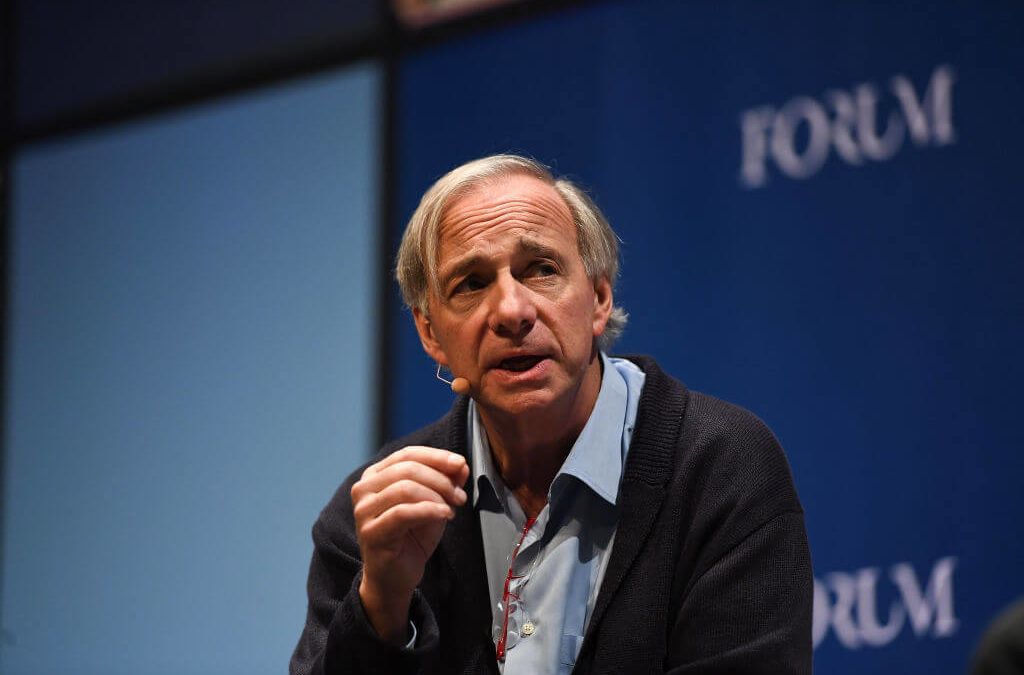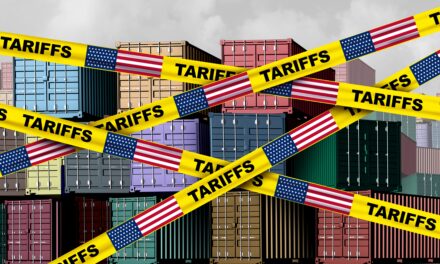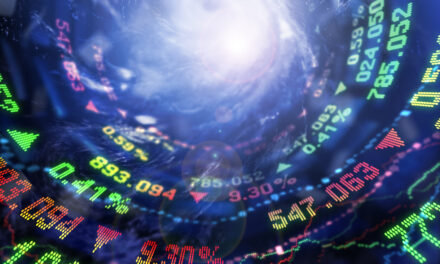Bridgewater Associates founder, brilliant market historian and talking head Ray Dalio said history is again repeating itself as we enter a new phase not unlike what we saw in 1944, which will bring about a “New World Order” over the next decade.
Speaking during Bloomberg’s New Economy Forum this week in Beijing, Dalio first explained his perspective: It isn’t “ideological” but rather “much like a mechanic of cause-effect relationships.”
“To me, the economy works like an economic machine and it’s a perpetual-motion machine, and it has long-term cycles and short-term cycles. I’ve learned that whenever I’ve made a mistake, many things happened that didn’t happen in my lifetime, but happened in prior lifetimes,” Dalio explained. “So I just want to describe, very simply, how the machine works and where I think we are because the same things happen over and over again through history, and many dynasties through history.”
Dalio then lists his “four major drivers”:
“First, there’s productivity. In other words, over a period of time, our living standards rise because we learn how to do things better and we get more output per man hour. Then there are cycles: short-term debt cycle, recession, expansion. The economy becomes too weak, inflation is low, monetary policy creates credit, credit creates demand and then you have a … tightening of monetary policy, and then we have a recession, in those cycles. So that’s around this productivity.
“Around that is also a long-term debt cycle, which is an accumulation of these other cycles, in which there’s a cycle that ends, largely, when you have a situation where you hit zero interest rates, and then you print money and it’s not as effective (inflation). And then, of course, there’s politics. Those are the four things.”
Dalio then explained that the period we’re in now is both not unlike previous periods — again, because history repeats itself — but also different in that we have technological advance like nothing the world has ever seen before.
“Technology is artificial intelligence and so on, (and it) is replacing people. It’s great for the whole but it changes the nature of the environment, and that’s going to have a very important implication in the years ahead,” Dalio said. “As far as the short-term debt cycle, the business cycle, we’re 10 years into this expansion. And many of those stimulants that have happened will be dissipating. We won’t have more interest rate cuts (once we hit zero), you won’t have more tax cuts and so on, and this is true around the world as we have our obligations.
“So we’re coming into this period that is sort of a big sag — not a debt crisis in that way but a lot of obligations that are coming at us, particularly in the mature reserve-currency countries. They include pension obligations, health care obligations and the like, large deficits which will have to be monetized. They’ll print money to deal with that. There’s a reserve currency issue.”
Back to cause-effect, this means that monetary policy simply won’t work as well as it has before, Dalio contends, which will bring about the “New World Order.”
“That enters the political realm of coordination of fiscal and monetary policy; it’s a New World Order,” Dalio said. “As far as the politics, naturally, because of this particular dynamic, because of three major factors, there’s a … widening wealth gap. And with that, an opportunity gap and a values gap. That’s because monetary buys financial assets, that makes financial assets go up and those who have financial assets have a lot of money. There’s technology that’s changing that, creating wider spreads; it benefits companies but it also displaces people, and there’s globalization.
And then we have a rising world power (China) butting up against the established global power (U.S.), much like we had in 1944, as well as a new monetary system in cryptocurrencies like Bitcoin.
“And then of course we have the external conflict, or the issues of the rising of a great power in the form of China, and the United States having its, we’ll say relative decline,” Dalio explained (sounding much like Money and Markets contributor Bill Bonner). “So we’re at a point that I think is very similar to 1944. There’s war after a period of war (like WWII after WWI); there’s a period of … peace because nobody wants to fight the country that won the war, and there’s a New World Order.
“And there was a new monetary system. In 1944 we established the dollar reserve currency-based monetary system and the like. And I think that all of that is going to really change the world order in dramatic ways in the next 10 years.”
Click here to watch the interview in full.




